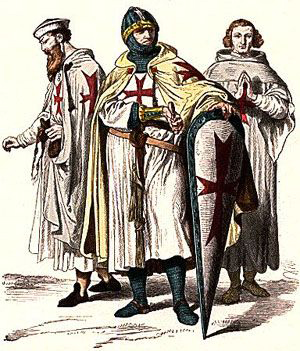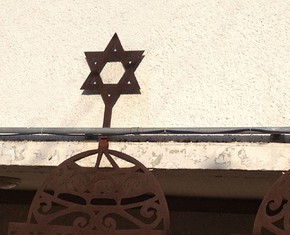The views expressed in our content reflect individual perspectives and do not represent the authoritative views of the Baha'i Faith.
In this series of articles we’ve cited and studied the groundbreaking recent book When Religion Becomes Evil, by Dr. Charles Kimball, which lists five major causes of problematic religious conflict and violence: absolute truth claims; blind obedience; establishing the ideal time (or triumphalism); and “the end justifies any means”. In this essay, we’ll consider what Kimball calls the worst religious evil of all – holy war:
…more wars have been waged, more people killed, and more evil perpetrated in the name of religion than by any other institutional force in human history… Declaring war “holy” is a sure sign of a corrupt religion. In fact, at the center of authentic religion one always finds the promise of peace, both an inner peace for the adherent and a requirement to seek peaceful coexistence with the rest of creation. – p. 156.
Many westerners associate the idea of holy or religious war solely with Islam – but that is a serious historical mistake. The Arabic word jihad, which many in the West believe means holy war, actually is literally translated as to strive or to struggle to do the right thing. Islam certainly spread initially “by the sword,” as expansionist wars conquered territory and converted populations – but several other faiths did the same thing during that dark and contentious period in history. Unfortunately, in today’s usage by extremists, the word jihad has come to be known as denoting only an armed struggle against others of different faiths.
 The historical record, however, shows that Christianity itself waged many if not most holy wars. The church recognized warriors who fought in the name of God as the Milites Christi, the warriors (or knights) of Christ. Those “holy warriors” and their armies fought the Crusades, a 200-year-long series of pitched and bloody military battles against the Moslems. Later the Church launched Crusades against other religious targets, including the Albigensian Crusade against the gnostic Cathars in Southern France, and the Northern Crusades to conquer and convert the Baltic countries. To justify these violent excursions, in 1095 the Catholic Pope, Urban the Second, issued a papal decree that completely contravened the teachings of Christ and raised the level of “acceptable Christian” war from bellum justum (“just war”), to bellum sacrum (“holy war”).
The historical record, however, shows that Christianity itself waged many if not most holy wars. The church recognized warriors who fought in the name of God as the Milites Christi, the warriors (or knights) of Christ. Those “holy warriors” and their armies fought the Crusades, a 200-year-long series of pitched and bloody military battles against the Moslems. Later the Church launched Crusades against other religious targets, including the Albigensian Crusade against the gnostic Cathars in Southern France, and the Northern Crusades to conquer and convert the Baltic countries. To justify these violent excursions, in 1095 the Catholic Pope, Urban the Second, issued a papal decree that completely contravened the teachings of Christ and raised the level of “acceptable Christian” war from bellum justum (“just war”), to bellum sacrum (“holy war”).
Kimball says that this long record of mutual hostility and violent savagery has corrupted the heart of Christianity and Islam:
Both Christians and Muslims claim that peace lies at the heart of their religions. Both Christianity and Islam, however, have a long and checkered history in which their respective adherents fought for causes declared holy. Many of those conflicts, moreover, involved fighting each other. Not only are these the two largest and most geographically dispersed religious communities, they also head the list of those who have corrupted the heart of their religion by linking it confidently to war. – p. 157.
Much of the current corruption in religion, the Baha’i writings say, comes directly from its leaders, those who seek power and wield violence in complete contravention of their Faith’s original message of peace:
In these days truthfulness and sincerity are sorely afflicted in the clutches of falsehood, and justice is tormented by the scourge of injustice. The smoke of corruption hath enveloped the whole world in such wise that naught can be seen in any direction save regiments of soldiers and nothing is heard from any land but the clashing of swords. We beseech God, the True One, to strengthen the wielders of His power in that which will rehabilitate the world and bring tranquility to the nations. – Baha’u’llah, Tablets of Baha’u’llah, p. 39.
At the conclusion of his book, Dr. Kimball agrees:
Like those generations who have gone before us, we, too, must look deep into our traditions for the wisdom and resources that support peacemaking rather than war, reconciliation rather than retaliation. But we must do this in a global context. – p. 189.
For Baha’is, global unity is the prerequisite for global peace and worldwide harmony between the great Faiths. Toward that end, the Baha’i Faith conclusively and definitively bans holy war:
Beware lest ye shed the blood of any one. Unsheathe the sword of your tongue from the scabbard of utterance, for therewith ye can conquer the citadels of men’s hearts. We have abolished the law to wage holy war against each other. God’s mercy hath, verily, encompassed all created things, if ye do but understand. – Baha’u’llah, Epistle to the Son of the Wolf, p. 24.
In the next and final installment in this series, we’ll look at the Baha’i teachings and how they explain, in a logical and understandable way, why religion becomes corrupt; why it inevitably declines; and why it must be renewed.
















Comments
Sign in or create an account
Continue with Googleor